Innovation charms in Singapore
At present, Vietnamese national Pham Quang Cuong, co-founder and CEO of Eureka Robotics, is working on its plan to expand its presence in new markets after gaining prestige and success in Singapore. Eureka Robotics is famous for IkeaBot - the robot went viral for its ability to build Ikea furniture as well (or better) than humans can.
“We now enjoy two-digit percentage growth annually. We are serving customers in Singapore, China and Japan. Our customers include very big names in industries, from electronics manufacturing to auto and aerospace companies,” Cuong told VIR. “We are expanding rapidly across three offices in Singapore, France and Hanoi, and will venture further in other new markets.”
Cuong elaboratd that he decided to start a research lab in 2018 at JTC LaunchPad with a lot of interest from the industry and then established a company in 2019 to begin his business journey here. Eureka Roboticscentres on robotic software and systems to serve automation tasks that require high accuracy and high agility. Its robots are used for precision handling, assembly, inspection, drilling and others.
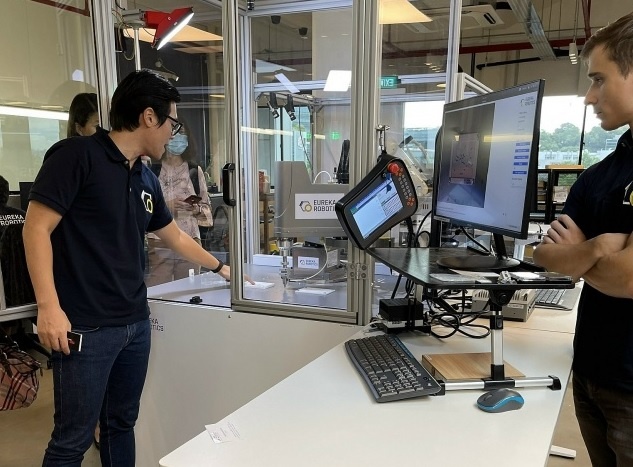 |
| Eureka Robotics at JTC LaunchPad |
Impressively, the startup raised $4.25 million in a pre-Series A round in May 2022, thus enabling it to continue its expansion dream.
Eureka Robotics is among the innovators and startups that I met as part of the week-long trip to the Singapore Week of Innovation and Technology (SWITCH 2022) in late October who began the future at JTC Launchpad and enjoy comprehensive support from the Singaporean government and Enterprise Singapore, the government agency championing enterprise development.
According JTC - the government agency championing sustainable industrial development, the manager of Launchpad, JTC LaunchPad has grown to be one of the most densely packed and dynamic entrepreneurial ecosystems in the region. It has hosted over 1,300 tech startups.
Poh Cai Ling, assistant director, the Startup Department of JTC said to build a network of vibrant startup clusters across Singapore where innovation and enterprise can flourish, JTC Launchpad provides infrastructure support that is affordable plug-and-play spaces for quick set-up and a “playground” to test innovative technologies. It also provides a holistic suite of support that enable them to access to a network of incubators, venture capitalists, service providers for business support & financing opportunities, as well as access to talent pool.
“JTC envisions LaunchPad to be the globally preferred startup location to seed the next generation of international enterprises. Together with our partners, we masterplan clean, green and smart estates as attractive destinations for talent and the community. We also drive innovation in the building and infrastructure sector,” she noted.
Like Eureka Robotics, Garuda Robotics was founded in 2013 by Jiin Joo Ong and Mark Yong, moved to JTC Launchpad in 2019. As a developer of industry-grade drone and drone data solutions for enterprises, governments, and professional drone operators, it is providing products and services in the agriculture, infrastructure, security, and logistics industries throughout Asia. It has grown well in Singapore and is planning to expand further.
“We have customers in many countries, and are looking for an opportunity in new markets, including Vietnam,” said co-founder and CTO Ong.
Together with these JTC Launchpad, Singapore is attracting regional innovative and tech startups to many private-run buildings of similar model with JTC Launchpad. They also work with EnterpriseSG in supporting them.
For instance, NSG Biolabs, established in 2019, is Singapore's largest level 2 biosafety co-working laboratory and office space. It is also the first private biotech incubator in Singapore that EnterpriseSG has brought in as one of its Startup SG Accelerator partners to support the growth of biotech startups.
ImmunoSCAPE and Engine Biosciences are among tenants incubating innovation at NSG BioLabs’ facility. NG Choon Peng, co-founder and CEO of ImmunoSCAPE, said, “Here we can share a wide array of lab equipment, meeting rooms, and enjoy low rental, thus helping save costs.”
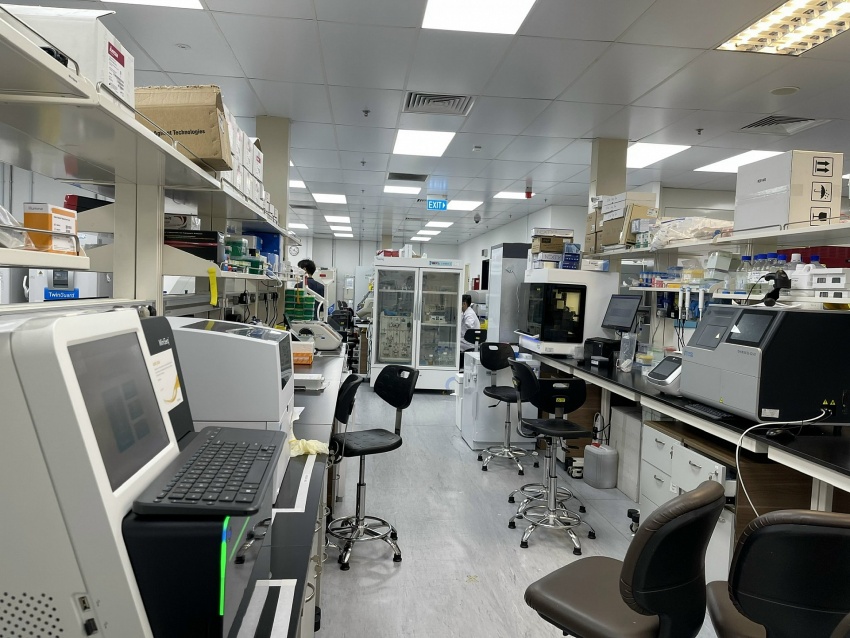 |
| NSG Biolabs |
ImmunoSCAPE, a pre-clinical biotechnology company focused on the discovery and development of next-generation TCR cell therapies in the field of oncology, is now in the product development stage, doing preclinical trial. And it plans to commercial products when it gets approval from Europe and Singapore, expected in 2024.
Similarly, Innovate 360 - Singapore’s first food incubator with manufacturing facilities being recognised and supported by the government – helps startups incubate innovations and commercialise breakthrough innovations thanks to business experience and networks and food ecosystem of education institutions, strategic partners/alliances, and connected food ecosystem in the Asia-Pacific. At Innovate 360, food accelerator focuses on deep technology, agri-tech, food sustainability, and consumer packaged goods.
Muu, a new startup at Innovate 360 from Thailand is developing animal-free dairy product that taste and function identically to the real thing. It is expected to introduce the product next year. Elsewhere, other new startups from Indonesia and Myanmar are also incubating their innovation here.
“We have helped more than 80 startups based in Singapore since 2018. We are going to occupy more buildings to welcome more new startups from countries in the upcoming time,” said John Cheng, director of Innovate 360.
Innovation charms
At SWITCH 2022, more than 9,000 participants – startups, entrepreneurs, investors, multinational corporations and public sector leaders –discussed emerging trends and opportunities in health and biomedical sciences, trade and connectivity, frontier technologies and many other areas. The event also featured more than 350 speakers and over 300 exhibitors from the global research, investor and startup communities.
Alan Hutchison, CEO of EU-based Prosfit from Bulgaria, was present at SWITCH 2022 to seek business oppurtunities. ProsFit’s digital platform allows the industrialised design and 3D printing of custom-made prosthetic sockets, medical devices, at scale. It is a manufacturer of medical devices – Prosfit optimal sockets and Prosfit connectors, aiming to build the capability to accommodate the increasing number of amputees in the world. This company won the Toyota StartUp Award in 2020, and is architecting the next stage of expansion to gain a 10 per cent share of a global addressable market of $20 billion.
“One of the reasons we're here is to meet as many people in the region as possible to build relationships and contacts and building trust. We are looking to establish a presence in the region and from Singapore serve the surrounding communities, including Vietnam. So we expect to be profitable in 2025,” Alan Hutchison said. “We plan to do major fundraising next year.”
Like Prosfit, Martin Scaife, chairman and CTO of Environmental Technology Pte Ltd making a range of environmental machines and being present in Japan, South Korea, Europe and many other markets joined SWITCH 2022. Martin Scaife said, “We are present in some countries. We sold our products to South Korea, Japan, Europe. We're selling machines into America soon Laurent Europe. And we are targeting other pontential markets, including Vietnam, where has a quite high population. I have visited Vietnam, looking to start a new factory here.”
These numbers prove how attractive Singapore is to innovative startups and businesses. According to the Global Innovation Index 2022, Singapore moved up a spot to become the 7th most innovative nation in the world. This country is now a leading startup node in Southeast Asia with 4,000 tech startups.
Singapore’s achievements might not happen by chance. Rather, it is the result of this country’s sustained efforts in developing a conducive ecosystem for growth, and in establishing strong collaboration with global partners.
For instance, according to Singapore’s Ministry of Trade and Industry, since 2010, Singapore have set aside about S$60 billion under its Research, Innovation and Enterprise, or RIE strategy, to deepen its research base and strengthen innovation capabilities of its enterprises across multiple domains. In 2021, EnterpriseSG supported close to 600 enterprises to embark on innovation projects, many of which benefitted from the RIE funding.
Singapore also continues to provide opportunities for SMEs and startups to partner global enterprises. Since 2021, EnterpriseSG organised 23 Open Innovation Challenges, where SMEs and startups collaborate with global enterprises to co-develop solutions in response to industry needs. To date, more than 100 challenge statements have been launched, and over 800 proposals have been submitted.
Growing trends
The trend of coming to Singapore to innovate ideas and commercial innovations shows signs of growing higher, reflecting the bustling startup ecosystem in Singapore and startup scene in the region. Singapore is planning to double down its efforts to spur innovation and make the most of the opportunities available.
According to EnterpriseSG, manufacturing, manufacturing is really advanced in digital transformation. And transport, ecommerce, environment food are in a start, and are catching up. They are attracting investors and startups in Singapore.
Statistics from EnterpriseSG shows that venture funding in Singapore continues at a healthy pace. Singapore managed to close 517 deals for the first three quarters of this year, up 6 per cent compared to the same period last year.
“There are some interesting compositional changes within this number. While growth-stage funding drove most of the jump in total investments from 2020 to 2021, 2022 saw a 25 per cent tapering of Series C and above rounds by value,” said Peter Ong, chairman of EnterpriseSG.
“Singapore has over 400 venture capital managers and an estimated 700 family offices here in Singapore. This is a community that will continue growing. As the world’s economic weight shifts towards Asia, Singapore has become a gateway to access Southeast Asia, a region brimming with opportunities,” he added.
Many venture funds and investment agencies are bullish on the opportunities in regional markets. They include WaveMaker Partners – The multi-faceted cross border venture capital firm, and Vertex Ventures, and Montréal International.
Carmen Yuen, general partner of Vertex Ventures, said regional countries, including Vietnam, Indonesia, Thailand, are potential markets. “We look at all five sectors in all the markets that we go to b2b advice, consumer internet, FinTech, healthcare IT and sustainability,” she admitted.
According to Singapore’s Ministry of Trade and Industry, the country will focus on three key prongs to increase its attraction. First, it continues growing its deep tech talent pool. Second is to strengthen its ecosystem and create an enabling environment for startups to thrive and grow; and third is to help startups scale their businesses and internationalise.
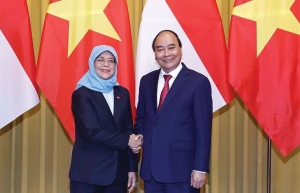 | Singapore ratchets up economic ties Vietnam and Singapore have expanded their bilateral ties in new fields which will help businesses benefit from new mechanisms. |
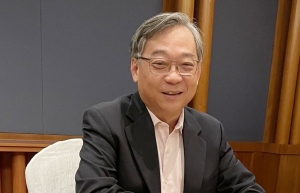 | Singapore expands Global Innovation Alliance The Global Innovation Alliance (GIA) network has grown to include Abu Dhabi and Seoul, helping Singapore-based tech startups and small- and medium-sized enterprises (SMEs) link up with partners and access more opportunities in the two markets. |
 | Doors open for Vietnam-Singapore innovation ties Bilateral trade relations between Vietnam and Singapore in digital transformation, economy, and innovations are expected to further deepen. In September, both countries reaffirmed the relations and welcomed the strong and multi-faceted progress under the Singapore-Vietnam Strategic Partnership. At the sidelines of the Singapore Week of Innovation and Technology, Gan Kim Yong, Singapore’s Minister for Trade and Industry, talked to VIR’s Bich Thuy about new innovative business. |
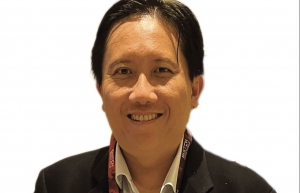 | Keys to success for unique startups As an innovation and startup hub in the region, Singapore continues to attract and nurture startups from Southeast Asia, with many startups managing to scale successfully out of Singapore. Edwin Chow, deputy CEO of Innovation and Enterprise at Enterprise Singapore, talked to VIR’s Minh Anh about the key factors to success for startups and how they can thrive in a global arena. |
What the stars mean:
★ Poor ★ ★ Promising ★★★ Good ★★★★ Very good ★★★★★ Exceptional
Themes: Digital Transformation
- Dassault Systèmes and Nvidia to build platform powering virtual twins
- Sci-tech sector sees January revenue growth of 23 per cent
- Advanced semiconductor testing and packaging plant to become operational in 2027
- BIM and ISO 19650 seen as key to improving project efficiency
- Viettel starts construction of semiconductor chip production plant
Related Contents
Latest News
More News
- Vietnam forest protection initiative launched (February 07, 2026 | 09:00)
- China buys $1.5bn of Vietnam farm produce in early 2026 (February 06, 2026 | 20:00)
- Vietnam-South Africa strategic partnership boosts business links (February 06, 2026 | 13:28)
- Mondelez Kinh Do renews the spirit of togetherness (February 06, 2026 | 09:35)
- Seafood exports rise in January (February 05, 2026 | 17:31)
- Accelerating digitalisation of air traffic services in Vietnam (February 05, 2026 | 17:30)
- Ekko raises $4.2 million to improve employee retention and financial wellbeing (February 05, 2026 | 17:28)
- Dassault Systèmes and Nvidia to build platform powering virtual twins (February 04, 2026 | 08:00)
- The PAN Group acquires $56 million in after-tax profit in 2025 (February 03, 2026 | 13:06)
- Young entrepreneurs community to accelerate admin reform (February 03, 2026 | 13:04)

 Tag:
Tag:






















 Mobile Version
Mobile Version